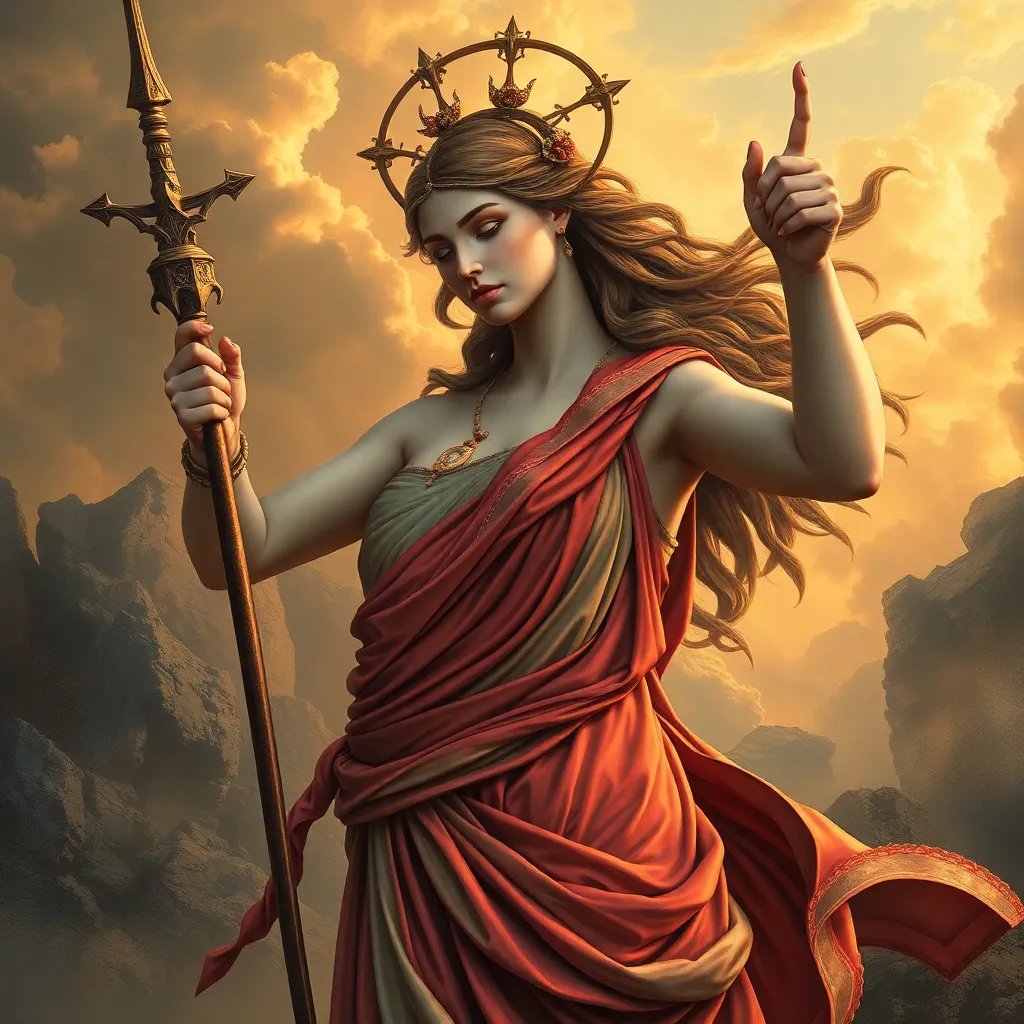Artemis and the Role of Women in Mythological Narratives
I. Introduction
Artemis, the Greek goddess of the hunt, wilderness, and childbirth, is a complex figure in Greek mythology. She represents not only the fierce independence associated with the hunt but also the nurturing aspects of motherhood and femininity. As a powerful deity, Artemis embodies the multifaceted nature of women in mythological narratives.
The significance of women in these narratives often reflects broader social values and issues, including gender roles, autonomy, and empowerment. This article aims to explore the role of women in mythology, particularly through the lens of Artemis, and to highlight her impact on the perception of female strength and independence throughout history.
II. Artemis: The Goddess of the Hunt
Artemis is one of the Olympian gods, the daughter of Zeus and Leto, and the twin sister of Apollo. Often depicted as a youthful huntress, she roams the forests with her bow and arrows, accompanied by a pack of loyal hounds. Her mythological background is rich and varied, revealing her importance in ancient Greek culture.
Some of the key attributes and symbols associated with Artemis include:
- Bow and Arrows: Representing her prowess in hunting.
- Moon: Often associated with the lunar aspects of femininity and intuition.
- Nature and Animals: A protector of wildlife, she embodies the wilderness and its preservation.
Artemis’s duality as both a protector of women and children and a fierce hunter speaks to the complexities of her character. She is revered not only for her strength but also for her role as a guardian of the vulnerable.
III. Female Empowerment in Artemis’s Mythology
Artemis stands as a symbol of independence and strength, often challenging the traditional gender roles of her time. Unlike many other female figures in mythology who rely on male deities, Artemis is self-sufficient and chooses to remain unmarried, which reflects her autonomy.
When compared to other female deities, such as Aphrodite, who embodies love and beauty, or Hera, who represents marriage and fidelity, Artemis’s character emphasizes empowerment through independence. Her refusal to conform to societal expectations regarding marriage and femininity positions her as a powerful figure in feminist interpretations of mythology.
IV. The Importance of Female Companionship in Artemis’s Stories
Artemis’s narratives often highlight the importance of female companionship, particularly through her relationships with nymphs and other female followers. These companions are not merely subservient figures; rather, they share in Artemis’s adventures and embody the themes of sisterhood and loyalty.
Key aspects of female companionship in Artemis’s stories include:
- Sisterhood: The bond between Artemis and her followers emphasizes the strength found in female relationships.
- Loyalty: Her companions often demonstrate unwavering loyalty, reflecting the value of trust among women.
- Empowerment: Together, they challenge male figures and societal norms, reinforcing the power of female unity.
In contrast, male figures in her myths often appear as antagonists or figures of authority, further highlighting the unique role of women in her narratives.
V. The Consequences of Defying Artemis
Artemis’s stories often include themes of punishment for those who disrespect or defy her. These myths serve as cautionary tales about the importance of respecting female autonomy and power. The consequences faced by those who invoke her wrath are severe, illustrating the seriousness of her divine authority.
Notable figures who faced Artemis’s punishment include:
- Actaeon: A hunter who accidentally saw Artemis bathing, leading to his transformation into a stag and being hunted by his own hounds.
- Niobe: A woman who boasted about her children in comparison to Artemis, resulting in the death of her offspring by Artemis and Apollo.
These stories underscore the lessons on female autonomy, respect, and the consequences of hubris, reinforcing the importance of recognizing the power of women in mythology.
VI. Artemis in Contemporary Culture
In modern media and literature, Artemis continues to be a prominent figure, often representing ideals of female strength and independence. Her character has evolved, reflecting contemporary discussions on gender and empowerment.
Some notable representations of Artemis in contemporary culture include:
- Literature: Books and novels often portray her as a feminist icon, emphasizing her independence and strength.
- Film and Television: Various adaptations depict her as a warrior and protector, appealing to modern audiences.
- Art: Artists frequently use her image to explore themes of femininity, nature, and empowerment.
Artemis’s enduring legacy inspires contemporary interpretations of female strength, making her a relevant figure in today’s discussions on gender equality and empowerment.
VII. Comparative Analysis with Other Cultures
When examining goddess figures across cultures, similarities and differences emerge in their representations and the roles they play within their respective mythologies. For example:
- Diana: The Roman counterpart of Artemis, also associated with hunting but often portrayed with different attributes.
- Durga: In Hindu mythology, Durga embodies strength and protection, similar to Artemis’s role as a guardian.
This comparative analysis reveals how different cultures honor female figures and the roles women play within their mythological narratives. Insights gained from these comparisons highlight the universal themes of empowerment and autonomy that resonate across cultures.
VIII. Conclusion
Artemis’s significance in mythological narratives extends beyond her role as the goddess of the hunt. She represents female strength, independence, and the importance of female companionship. Through her stories, we gain insight into the value of women’s roles in mythology and their reflections on societal values.
The enduring legacy of female figures like Artemis in mythology continues to inspire discussions on gender and empowerment today. As society progresses, the relevance of these narratives remains paramount, reminding us of the strength and autonomy that women have always embodied.




